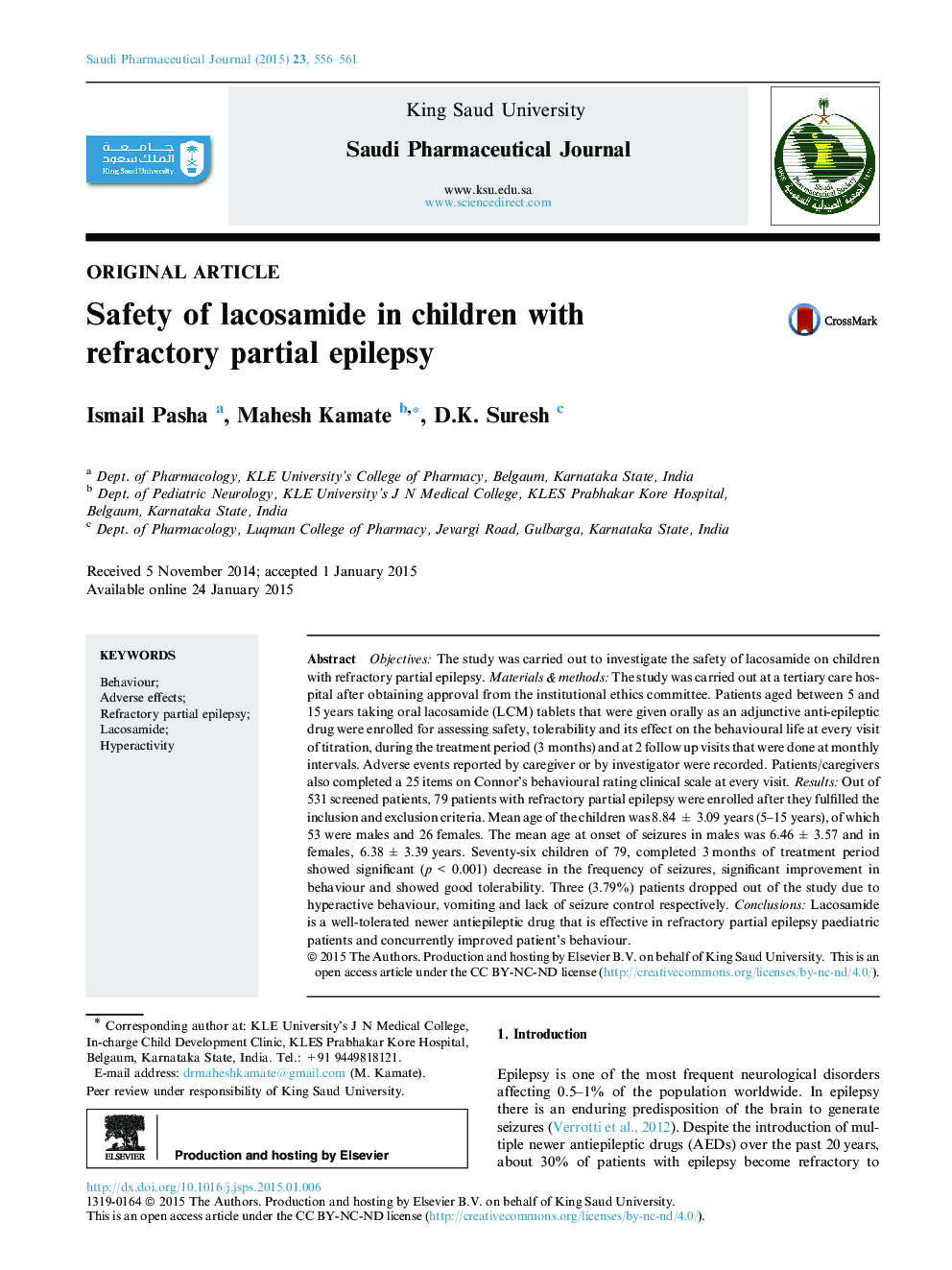| Article ID | Journal | Published Year | Pages | File Type |
|---|---|---|---|---|
| 2509412 | Saudi Pharmaceutical Journal | 2015 | 6 Pages |
Objectives: The study was carried out to investigate the safety of lacosamide on children with refractory partial epilepsy. Materials & methods: The study was carried out at a tertiary care hospital after obtaining approval from the institutional ethics committee. Patients aged between 5 and 15 years taking oral lacosamide (LCM) tablets that were given orally as an adjunctive anti-epileptic drug were enrolled for assessing safety, tolerability and its effect on the behavioural life at every visit of titration, during the treatment period (3 months) and at 2 follow up visits that were done at monthly intervals. Adverse events reported by caregiver or by investigator were recorded. Patients/caregivers also completed a 25 items on Connor’s behavioural rating clinical scale at every visit. Results: Out of 531 screened patients, 79 patients with refractory partial epilepsy were enrolled after they fulfilled the inclusion and exclusion criteria. Mean age of the children was 8.84 ± 3.09 years (5–15 years), of which 53 were males and 26 females. The mean age at onset of seizures in males was 6.46 ± 3.57 and in females, 6.38 ± 3.39 years. Seventy-six children of 79, completed 3 months of treatment period showed significant (p < 0.001) decrease in the frequency of seizures, significant improvement in behaviour and showed good tolerability. Three (3.79%) patients dropped out of the study due to hyperactive behaviour, vomiting and lack of seizure control respectively. Conclusions: Lacosamide is a well-tolerated newer antiepileptic drug that is effective in refractory partial epilepsy paediatric patients and concurrently improved patient’s behaviour.
